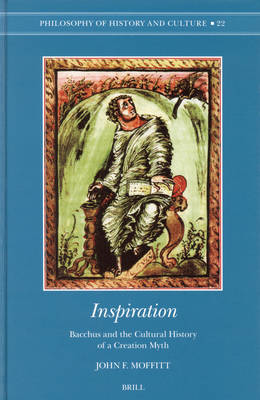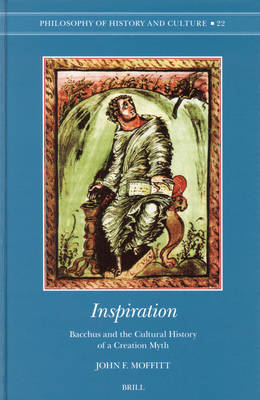
- Afhalen na 1 uur in een winkel met voorraad
- Gratis thuislevering in België vanaf € 30
- Ruim aanbod met 7 miljoen producten
- Afhalen na 1 uur in een winkel met voorraad
- Gratis thuislevering in België vanaf € 30
- Ruim aanbod met 7 miljoen producten
Zoeken
Inspiration: Bacchus and the Cultural History of a Creation Myth
John F Moffitt
€ 245,95
+ 491 punten
Omschrijving
The purpose of this book is to reveal the antique pedigree of a now commonplace term, "Inspiration," an essential creation-myth now propelling notions of "self-expression" in modern art-making. Knowledge of the ancient sources of such supposedly "modernist" fixations will make a significant contribution to historical-cultural thinking, particularly by showing in detail the facts of an unrecognized evolutionary continuity. In order to personify "Inspiration," this study initially focuses upon Michelangelo's Bacchus of 1496, so revealing now-forgotten meanings once typically to be attached in a generic way to any "Bacchus." Then it demonstrates how these "Dionysiac" concepts arose in ancient Greece. Later developments--particularly from the Middle Ages through the Renaissance--are traced here for the first time. Due to further modifications by Friedrich Nietzsche, Dionysiac "expressionism" eventually became a staple of modern art theory and practice.
Specificaties
Betrokkenen
- Auteur(s):
- Uitgeverij:
Inhoud
- Aantal bladzijden:
- 416
- Taal:
- Engels
- Reeks:
- Reeksnummer:
- nr. 22
Eigenschappen
- Productcode (EAN):
- 9789004142794
- Verschijningsdatum:
- 14/01/2005
- Uitvoering:
- Hardcover
- Formaat:
- Genaaid
- Afmetingen:
- 166 mm x 248 mm
- Gewicht:
- 907 g

Alleen bij Standaard Boekhandel
+ 491 punten op je klantenkaart van Standaard Boekhandel
Beoordelingen
We publiceren alleen reviews die voldoen aan de voorwaarden voor reviews. Bekijk onze voorwaarden voor reviews.








